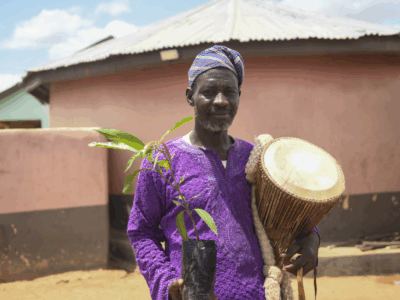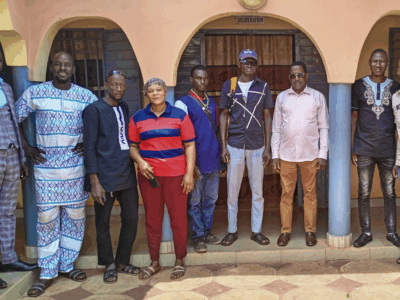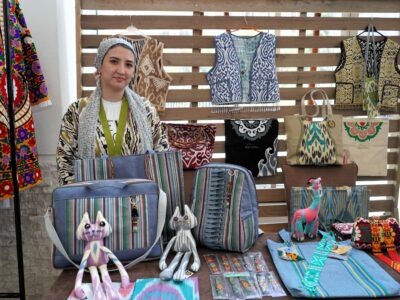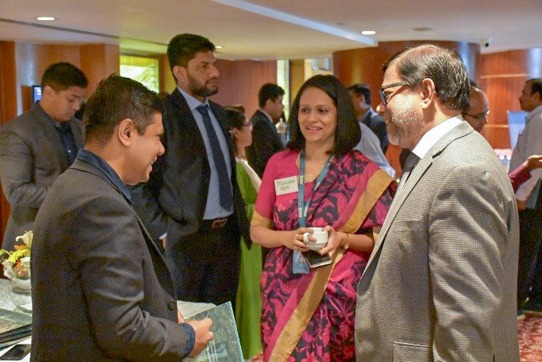
In September, the Feed the Future Bangladesh Rice and Diversified Crops (RDC) Activity, funded by the United States Agency for International Development and implemented by ACDI/VOCA and its partner Action for Enterprise, facilitated a financial sector roundtable discussion in Dhaka to discuss Bangladesh’s agricultural sector. It was attended by over 40 participants from some of Bangladesh’s leading companies, namely national banks, mobile and digital finance firms, alternative investors, and agribusinesses. The dialogue was organized as part of the RDC Activity’s strategy to catalyze changes in market systems through partnerships with the private sector. This will create new commercial opportunities and, through that, scalable market system impacts.
For small- and medium-sized enterprises (SMEs) in Bangladesh, including those in agriculture and food supply chains, the gap between supply and demand of financing for SMEs is estimated at $6.8 billion. Therefore, the objective of the roundtable was twofold: (1) to showcase the business opportunity that Bangladesh’s agriculture sector holds for banks, alternative investors, financial technology companies, and other financial sector actors, and (2) to encourage discussion around ways to tap into this opportunity and improve access to finance for agro-SMEs and farmers to improve production and market opportunities. For example, the Feed the Future Zone in southwestern Bangladesh is estimated to have 36,000 agro-retailers transacting $743 million annually as well as 4 million farmers buying $528 million on credit per year.
The roundtable began with a series of presentations on the RDC Activity and research on financing Bangladesh’s agriculture sector. Chief of Party Timothy Russell gave an overview of the RDC Activity’s goals and objectives, target areas in the Feed the Future Zone, and RDC’s private sector partnership strategy with identified partners and stakeholders.
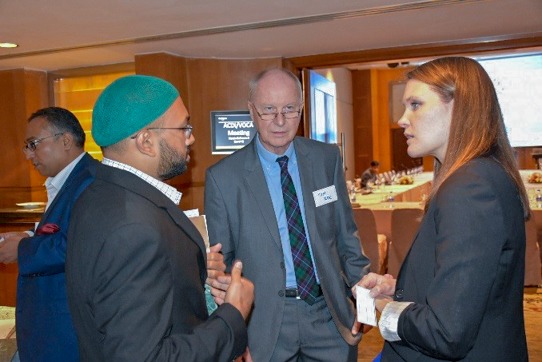
Heather Bateman, associate director of partnership and investments at ACDI/VOCA, further elaborated the demand for finance in the agricultural sector, existing constraints, and potential for innovation in financial products and services based on research conducted by the RDC Activity.
The roundtable also highlighted case studies of financial innovation in agriculture, namely in the Kyrgyz Republic through the USAID Agro Horizon Project. ACDI/VOCA’s director of finance and investment in the Kyrgyz Republic, Adilet Maimekov, detailed how the USAID Agro Horizon Project partnered with banks to catalyze the development of new financial products and services for farmers and agro-SMEs, including digital finance solutions, value chain finance through contract farming, and agent banking. Such models brought nearly $22 million in local financing to 23,000 customers (farmers and agribusinesses) in just over one year alone.
Bidowra Tahmin Khan, manager of market systems support systems for the RDC Activity, opened the discussion by describing the RDC Activity’s proposed strategies for engaging with the financial sector. Moderated by Muaz Zalil, a consultant for RDC, the hour-long, open-floor discussion session allowed participants to share opinions, suggestions, and examples of past and current models in agriculture finance in Bangladesh.
Participants addressed existing agri-financing resources and facilities, often heavily concentrated in urban areas, which are difficult for rural agribusinesses and farmers to access due to lack of collateral, information gaps, and financial illiteracy.
However, participants shared highlights of models in Bangladesh that show promise of improving financing for agriculture, such as the recent acceleration in agent banking and digital transacting, which sparked continued conversation and interest post-roundtable.
Overall, the session demonstrated the urgency to improve financial engagement in Bangladesh’s agriculture sector, particularly in the Feed the Future Zone. Participants also suggested that more focused discussions on improving finance for agriculture should be organized periodically with active participation from relevant public and private stakeholders, which the RDC Activity plans to facilitate.
The discussion concluded with an announcement of the RDC Activity’s upcoming request for applications (RFA) from interested firms working in Bangladesh’s financial sector to partner with RDC on piloting innovative and scalable models to improve access to finance for agro-SMEs and farmers in the Feed the Future Zone. The RFA is anticipated to be released during the week of September 23, with first-round applications due one month later.
Learn more about Feed the Future Bangladesh Rice and Diversified Crops (RDC) Activity.
Learn more about our work in Bangladesh.

